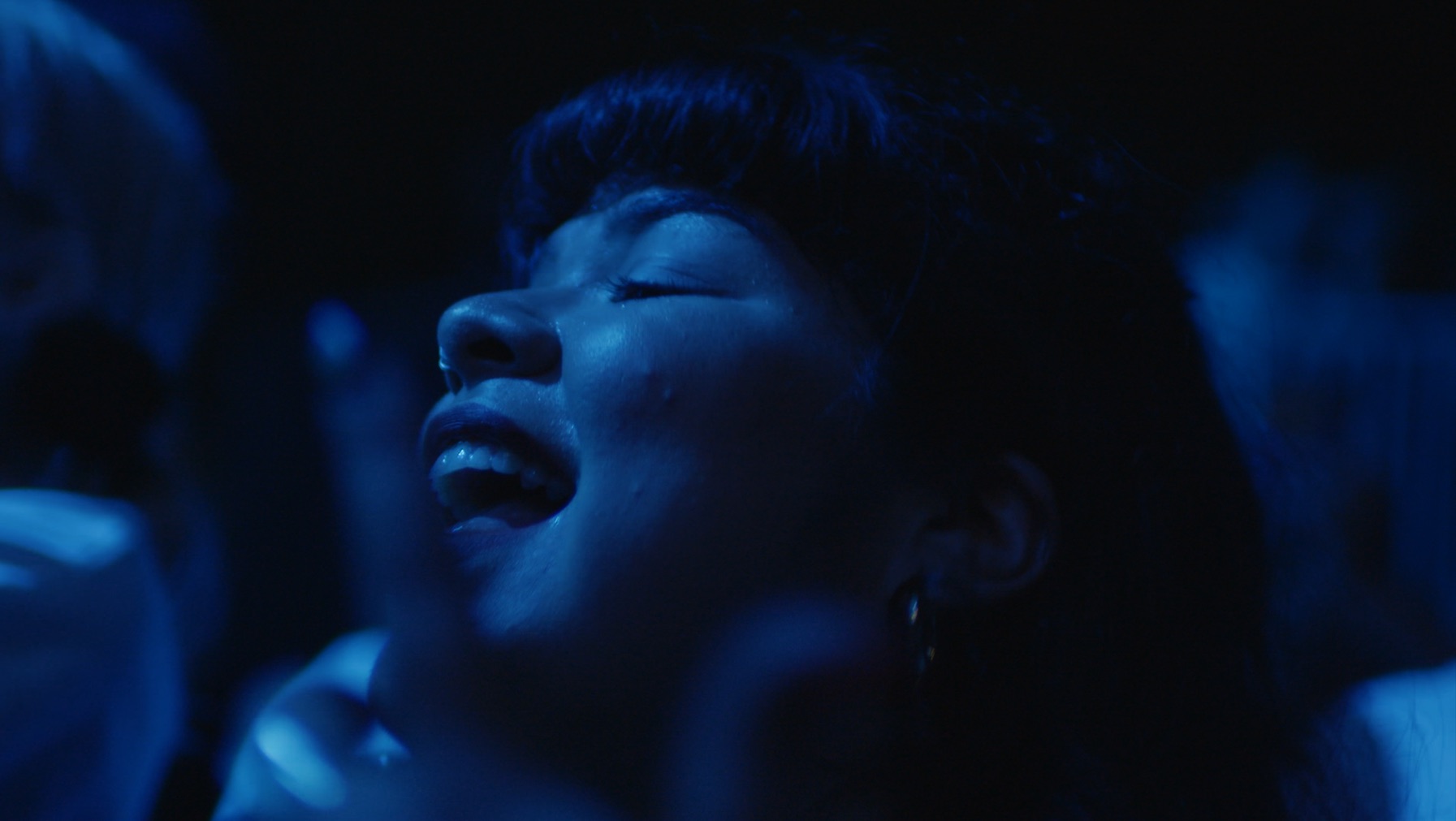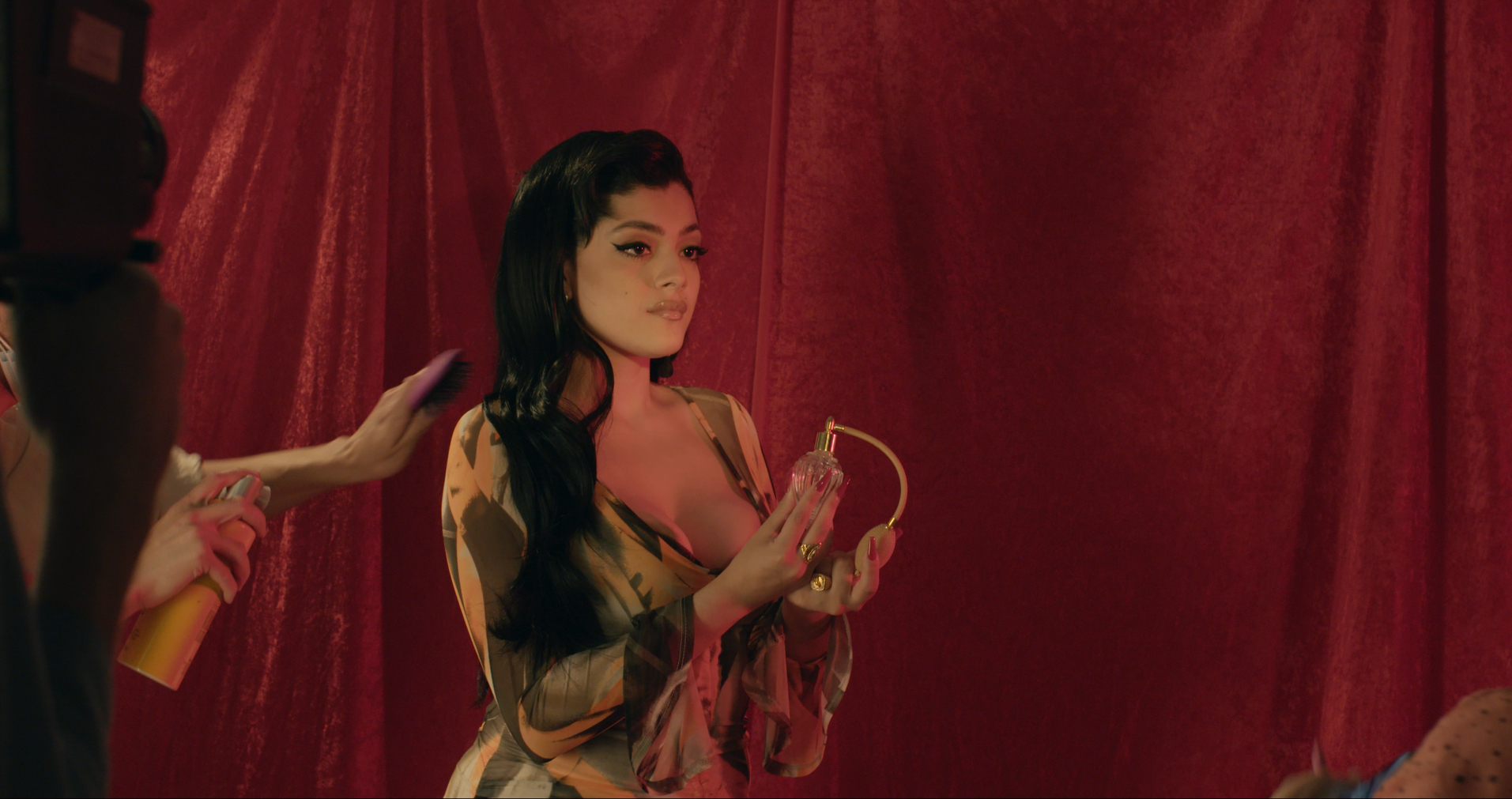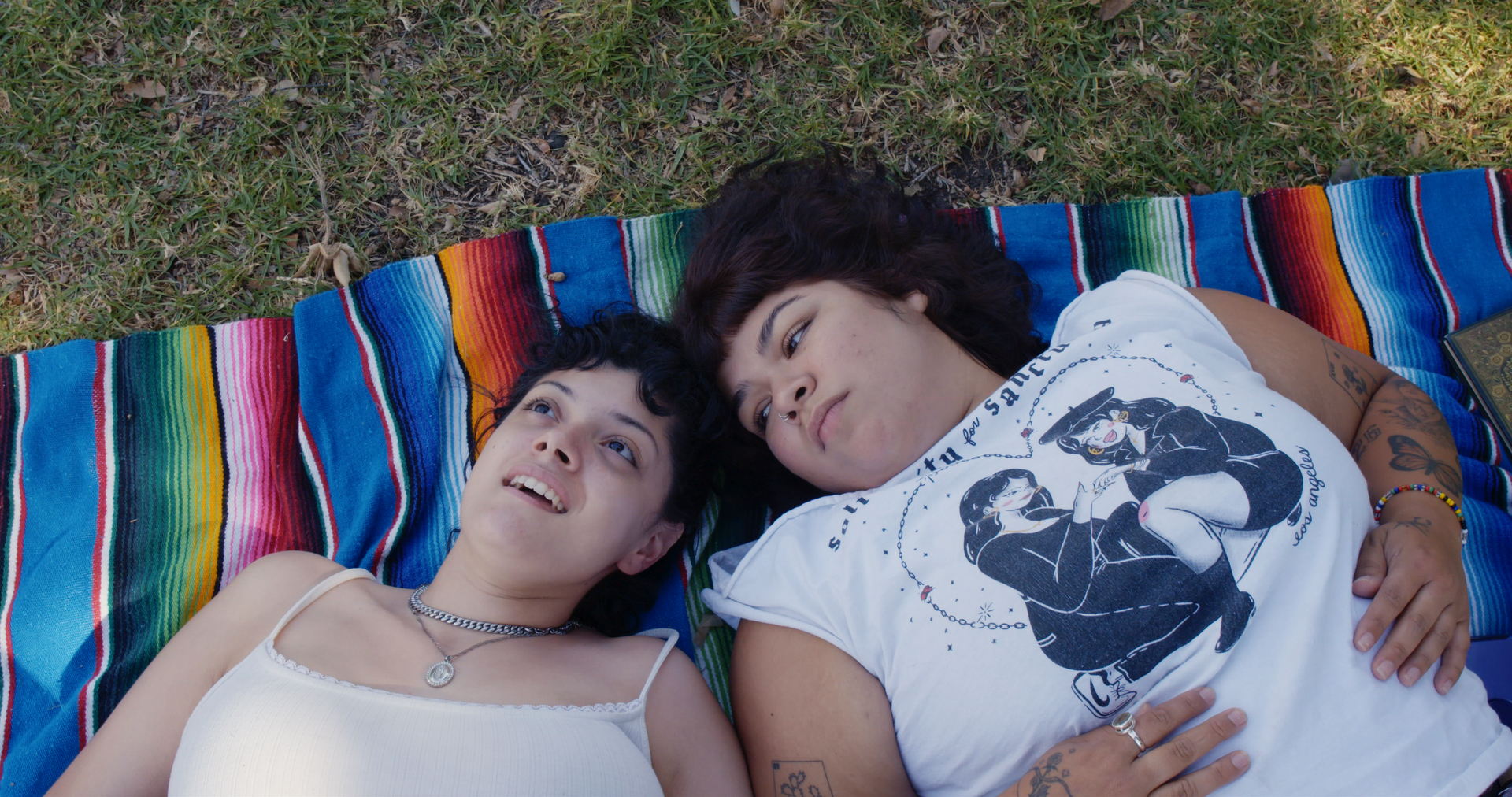Filmmaker Isabel Castro’s debut feature-length documentary, “Mija,” takes viewers on an ethereal joyride. The story is centered on the experiences and dreams of Doris Muñoz, a driven music manager from Southern California who is in search of the next rising talent. This journey leads her to Jacks Haupt, an aspiring singer-songwriter from Dallas, Texas. “Mija” premiered at the 2022 Sundance Film Festival in the NEXT section.
After covering immigration and civil rights for a decade, Castro wanted to tell a different kind of immigration story, one not reduced to loss and trauma. The four-time Emmy nominated filmmaker found her story when she met Muñoz. At the time, the manager had recently parted ways with rising indie-pop star Cuco and was hustling to salvage her management company during the pandemic. When Muñoz and Haupt join forces, they not only share professional ambitions but an ultimate objective: to be able to support their undocumented families. Through an intimate portrayal of artistic struggle and family relationships, Castro explores the nuances of navigating uncharted territory as children of immigrant parents while carrying the responsibility to succeed and provide.
Born in Mexico, Castro moved periodically with her family throughout her childhood. After relocating to Argentina and Brazil, the Castro family settled in Los Angeles, then a predominantly white neighborhood in Connecticut. Although her instinct was to assimilate, Castro held tight to her Mexican roots. After attending New York University to pursue a path in photojournalism, she landed an internship at The New York Times that helped her launch her first projects. Later in her career, Isabel directed, produced, and lensed the Emmy-nominated “Darlin” (Tribeca 2019, NYT OpDocs). The project follows a Honduran family struggling to reunite after their separation under the zero-tolerance policy. The filmmaker also developed the documentary short “USA v Scott” (Tribeca 2020, The New Yorker), exploring the legality and ethics of humanitarian aid for migrants. In addition, Castro won a 2015 GLAAD Media Award for Outstanding Documentary for her directorial debut “Crossing Over” (Univision/Participant Media), about transgender asylum seekers. “I’m ready for more films that are trying to complicate and expand our understanding of the immigration experience and our lived experiences,” Castro tells LATINA.
During the 2022 Sundance Film Festival, Film Programmer Dilcia Barrera sat down with Castro for LATINA. The two chatted about Castro’s debut as a feature filmmaker, the premiere of “Mija,” and how cinematic style can depict a more complete view of the immigrant story.

Still from “Mija” (2022). The Music Industry veteran Doris Muñoz is pictured here. Photography courtesy of Isabel Castro.
You recently had your official world premiere. How are you feeling now that the film is out?
Completely overwhelmed. This is my first film, so I’ve never worked with publicists or sales agents. And that whole part of the process has been a huge learning experience. I feel like I have developed some muscles in most other parts of the filmmaking process, even though it’s not exactly the same. But for this leg of it, like I’m a fish out of water. I keep telling people I’m like a chicken with my head cut off. It’s been a really validating reminder of the value of filmmaking and the arts. This is the biggest moment in my entire career where I feel like this really matters and can make a difference. Just seeing the way that people are reacting to it, especially the Latinx audience, has been particularly inspiring.
It feels like this is the right time for this story. A story about immigration, where hope, beauty, and understanding come from your perspective. Our community is thirsty for that right now.
We’re often put in this niche, in this box of storytelling. My hope is that will expand. I’m so excited for other people’s interpretations and a nuanced depiction of our shared realities.
It’s been about a decade where you’ve been in the space of nonfiction covering immigration and civil rights. This is a new phase for you. How did you meet Doris? Why was her story the story that catapulted you into this entire journey?
I met Doris in 2019. I wanted to do a story about immigration that felt different from the ones I typically see on television or read about. For this one, I wanted to tell a story that didn’t exclusively center pain and trauma. I wanted to complicate the immigrant experience and try to have the film live in all the other emotions of that experience. The pressure, the guilt, the joy, the resentment, and the whole spectrum of emotions that we all feel intergenerationally. And I wanted to do it from the perspective of a young person.

Still from “Mija” (2022). Singer-songwriter Jacks Haupt is pictured behind the scenes of her music video shoot. Photography courtesy of Isabel Castro.
The sisterhood and friendship you’ve developed with Doris and Jacks is so palpable. It seems like you three grew up together and know each other in so many ways. Was this relationship unexpected?
In terms of relationships with the people you film, whether in journalism or in work for hire that I’ve done, you constantly have to think about your relationship with that person. It is fundamentally unnatural to show up to somebody’s life and ask permission for access. It’s a lot of responsibility. What was unique about this experience is that we’re all close in age. And we connect on a lot of levels, in addition to themes that are explored in the film. I’m certainly past my coming-of-age phase, but the similarities of being a woman in these difficult industries bonded us. I see a lot of parallels in film and music.
You hired many people who maybe never had opportunities to break into this world, using your opportunity to open doors for others. Do you see that being part of your work in the future?
I get really frustrated because representation has become this hot topic. I look at how different crews are hiring on television and film. I look at these major media corporations and how they hire. Everyone is on board with representation, but they don’t put in the work to reflect that in their own teams and work environments. And that really pisses me off. I also don’t want to be prescriptive. I don’t want to exclusively hire one demographic or gender because then things become too binary. But I want to give people opportunities to do things that they might be less qualified to do than people who just get those jobs every time. There are just so many people that are so ready, willing, talented, and able to do these jobs, but they’re not given a chance. So it’s something I want to do in my own work whenever I have the power to do it.
This is a documentary about artists, by artists. There’s artistry around it, and your voice comes through. I wanted you to speak about the importance of finding your voice and finding your way of telling a story that stands out.
I feel very passionate about this topic because documentaries have this aspiration towards objectivity. There’s also a visual palette that communicates — or people think it communicates — objectivity. With time, I’ve felt that objectivity is a fallacy. To a certain extent, every story is told from the perspective of the person telling it. To me, this aspiration towards objectivity is a euphemism for a white patriarchal gaze. I wanted to figure out how to communicate a voice that felt like I was speaking through my visual language. And that required learning a lot of rules to then break them.
What have you learned in this experience that you think other filmmakers or storytellers can learn from?
A piece of advice that I really wish I had known earlier is to not ask for permission so much. I was so committed to proving every step of the way that I was really good at cinematography and producing. I was just getting eclipsed by men and especially white men. I felt like I wasn’t either ready or didn’t deserve it. So my biggest advice for young filmmakers, given that production equipment can be cheaper than it ever has been, is just to experiment. Don’t allow other people to have power over your ability to create. It took a lot of rejection along the way. But every single rejection got me closer to another ally that was advocating for me in the film, ultimately allowing me to end up in this place. Our muscles get stronger, and you become more experienced and continue to find your voice.









